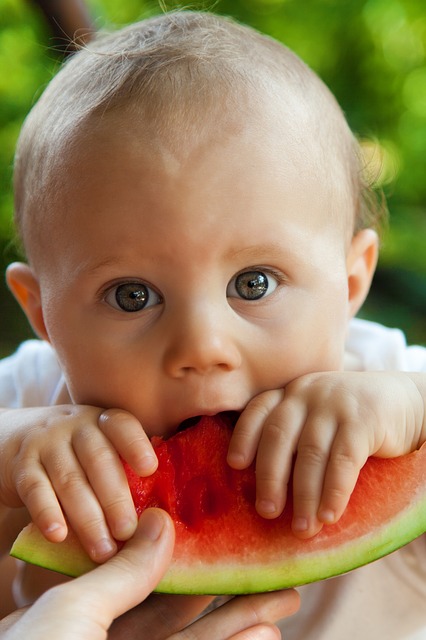9 Practical Tips on Child Feeding
Tip 1
As advised earlier, let your child have a varied diet with food items derived from each of the four major food groups.
It does not really matter if he insists on taking an almost fixed group of food preparations for a few days as long as he take a balanced diet on the whole in sufficient quantity.
With patient encouragement and his own changing tastes, he will gradually widen his choice.
Tip 2
Milk and milk products are important sources of energy, proteins, calcium and vitamin A.
besides other foods, a child must take about ½ litre ( 500 ml; 18 oz) of milk and milk products per day from the age of one year onwards.
A child below five years should be given whole milk and not skimmed or semi-skimmed milk.

Tip 3
If your child is different and finicky about the common family diet you can help him by making more attractive and palatable food preparations.
For example, milk may be given as a flavoured drink or as milk shake, or in the form of yoghurt, ice cream, milk pudding, khoya etc.
Tip 4
Heavy snacks between meals should be discouraged as they spoil the child’s appetite for his main meals.
If need be, it is better to offer him fresh fruit (may be as fruit chaat), sandwiches with various fillings, salted chana (Bengal gram), peanuts and popcorn instead of sweets, cakes and chocolates.
If he insists on having sweet snacks, it would be better to give him home-cooked preparations like rice milk pudding (kheer), sooji ka halwa etc.
Tip 5
Sugar is a major cause of tooth decay in children.
You should cut down on sugary foods like sweets, chocolates, biscuits, cakes, fizzy colas and squashes.
It is better to give fresh fruit juices instead of artificially sweetened and flavoured drinks.
When the child takes chocolates, sweets or fizzy drinks, he should consume them quickly rather than nibble or sip them over long intervals.
This reduces the sugar’s contact with the child’s teeth and the resultant damage.
Tip 6
Do not be overanxious about the probable inadequacy of your child’s diet.
If he is fit and healthy, growing and gaining weight and is full of energy, don’t fuss about his eating.
You can rest assured he is receving adequate nutrition.
Tip 7
Mealtimes should be enjoyable, both for the child and for you.
Talk about things other than food and avoid getting into a battle of will with him on the choice of food items at each meal.
Tip 8
If a child is a poor eater, try and get some other children of the same age who are good eaters to have meals along with him.
A good example sometimes works.
Some children eat better in the company of their grandparents or some other adult member of the family for whom they have some special liking.
Tip 9
If your child tends to be overweight, reduce the use of cooking oil and ghee while preparing your family food.
Where feasible, grill or bake instead of frying his food.
If you are a non-vegetarian, trim the visible fat off the red meat and skin off fish and poultry.
It may also be preferable to use sunflower and corn oil to cook food for the whole family instead of saturated fats like ghee, especially if there is a strong family history of coronary heart disease.
